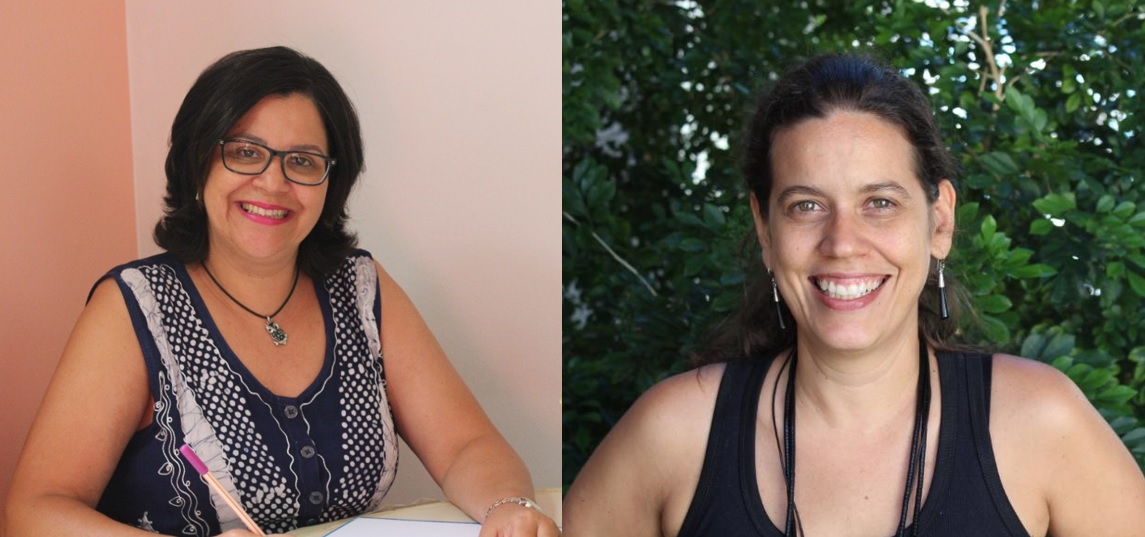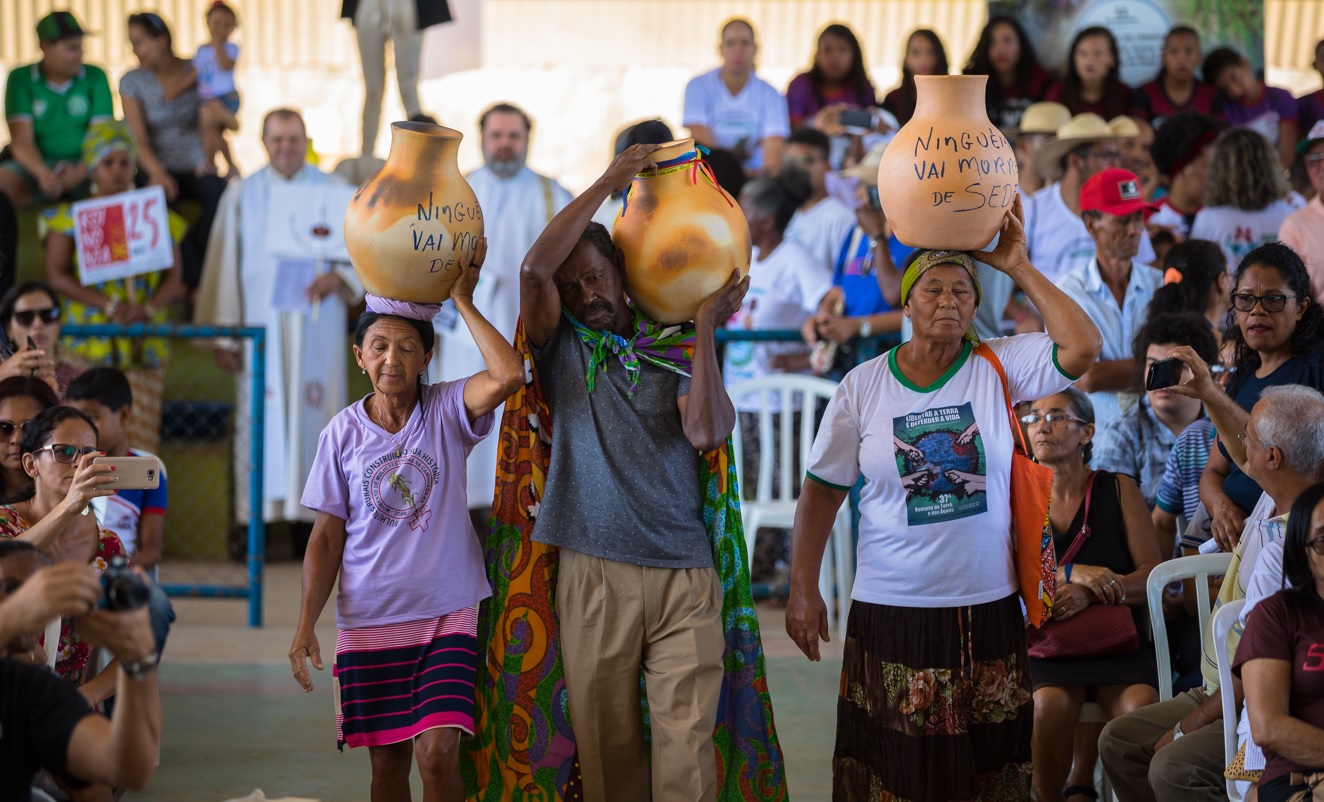“We should not be seen as contractors or implementers of strategies designed by other actors” – Meet the Giving for Change alliance: Coordenadoria Ecumênica de Serviço (CESE)
28 Oct 2021
In this series of interviews, we will be introducing you to the lead partners involved in the Giving for Change programme! The five-year, €24 million programme will be implemented in Brazil, Burkina Faso, Ethiopia, Ghana, Kenya, Mozambique, Palestine and Uganda, and is led by a consortium of four organizations: the Africa Philanthropy Network, Kenya Community Development Foundation, GFCF and Wilde Ganzen. The aim of Giving for Change – part of the Dutch government’s ‘Power of Voices’ programme – is to foster local giving as an expression of voice, civic participation, solidarity and dissent. The programme will build evidence around new thinking, approaches and leadership that support community philanthropy development.
In this interview we speak with Sônia Mota, Executive Director and Viviane Hermida, Project and Training Advisor, at Coordenadoria Ecumênica de Serviço (CESE). CESE is a philanthropic ecumenical organization – formed by six Christian churches – working with grassroots organizations across Brazil to strengthen social justice in the country.
GFCF: What does community philanthropy currently look like in Brazil?

(L – R): Sônia Mota, Executive Director & Viviane Hermida, Project & Training Advisor, at CESE
Viviane: The term “community philanthropy” is not familiar to CESE’s partners, the social movements and grassroots organizations that we work with, and is normally associated to service delivery in healthcare or education, done by churches or the private sector. However, we recognize that most of the practices that are described as part of the community philanthropy concept are present historically within organizations who have practices of raising funds, and mobilizing people and volunteers to support community activities. Such local resources are also used to fund a broader rights agenda, including demonstrations and interventions in public policy. All this involves a lot of investment and contribution from people in the field at the community level.
GFCF: What does #ShiftThePower mean to you/your organization?
Sônia: We got to know more about #ShiftThePower in the last three years through the GFCF and we acknowledge that these discussions are extremely important, especially when we consider the democratic setbacks in our country. This includes the criminalization of social movements and the struggle for human rights. Therefore, our work focuses on shifting the power towards the people who are directly affected by inequality. We recognize that some agencies and INGOs in the Global North have practices that are very far from what we envision as equal power relations between partners.
GFCF: How will the Giving for Change programme help to advance the community philanthropy field or #ShiftThePower in Brazil?
Viviane: The programme serves as a relationship builder between organizations that are working towards the bigger aim of defending human rights and democratic structures. Specifically, we are working on a community of practice which is formed by black women, indigenous women and all the marginalized women that are usually not part of all the big debates of international organizations. These womens’ contributions are enormous but they are usually seen as a natural extension of their housework and community work. This makes their political work invisible. Thus, we expect to contribute towards making the contributions from all of this women to their communities more visible.
Furthermore, we will also focus on making the broader political work towards human rights visible to all who are part of international cooperation. The Giving for Change programme works in two crucial areas – one is strengthening the capacity of organizations to sustain both movements, and themselves. Secondly, it is about advocating for rights in the local spheres, and engaging with local authorities. We will work as a field to increase and improve the visibility of women’s contributions and the power of those womens groups to engage with local authorities to defend human rights.
GFCF: How can the Giving for Change programme help encourage donors / INGOs to really shift power and resources closer to the ground?
Sônia: A good starting point is to reaffirm the relevancy of civil society as political actors which are crucial for democracy, human rights and also holding governments accountable through public policies that are adequate to address our bigger problems such as inequality, sexism and racism. We believe that INGOs should prioritize civil society organizations as interlocutors when designing their policies. We of course have long-term relationships with some INGOs, foundations and cooperation agencies, and we know the value of long-term partnerships that are based on common values and principles instead of results-based kinds of relationships. Both #ShiftThePower and the Giving for Change programme come at a very critical moment given the challenges imposed by the COVID-19 pandemic. In this context, donors and INGOs are tending to restrict the role of civil society in the south to merely respond to humanitarian issues, and thus depoliticize the role of civil society organizations. The pandemic has revealed structural problems in our society and in Brazil it has to do with class, race, ethnicity and gender inequalities. These are structural issues that require a vibrant civil society that is able to not only respond to such challenges whenever it is needed, but also able to develop long-term interventions that bring about sustainable development.
GFCF: How has aid undermined local giving practices and what can the Giving for Change programme do about that?
Viviane: As we were saying before, we do have positive experiences with our partners in the Global North in terms of long-term commitments that are based on principles, values and the idea of solidarity among people. Nevertheless, we recognize this is not the case for many INGOs and other donors, which hold more results-oriented kinds of relationship that are very instrumental. Thus, we very much agree with the Giving for Change reasoning that we should not be seen as contractors or implementers of strategies designed by other actors. We should have the autonomy to establish our own agendas in dialogue with donors, rather than only to meet the conditions that they set.
One specific practice that we think is very negative, is the localization of INGOs. These INGOs compete with the Brazilian organizations and we know this is the case in other countries too. Another worrying practice is that foundations and INGOs, less and less, are consulting with civil society. We really believe democracy requires a strong civil society that is considered within its plurality. Democracy also requires bringing the thousands of communities and grassroots groups into this debate to be really heard, as well as making INGOs more accountable. We are critical of some foundations that are even able to influence health and education policies in some countries, without any form of accountability or legitimacy, since they are not elected and they do not have a significant constituency.
Processes of strengthening civil society and grassroots organizations are long-term and they are not linear. To achieve real change, we must work to build strategic relationships too.
GFCF: Any final thoughts?
Viviane: When we were preparing for this interview, we were reminded of an Afro-American feminist, Audre Lorde, who said: “The master’s tools will never dismantle the master’s house.” We would like to highlight that the Giving for Change programme is a great opportunity for us to collectively create a new vocabulary that is connected and built through dialogue with grassroots organizations and communities. A vocabulary which is not based on capitalist, colonial assumptions and asymmetrical power relations, but one that values the views from people at the margins.
Read more about CESE’s launch of Giving for Change in Brazil here.
Interview conducted by: Tarisai Jangara, GFCF Communications Specialist
Meet the other Giving for Change partners:
Association Burkinabè de Fundraising (Burkina Faso)
Brazil Philanthropy Network for Social Justice
Development Expertise Center (Ethiopia)
Global Fund for Community Foundations (South Africa)
Kenya Community Development Foundation
MICAIA Foundation (Mozambique)


